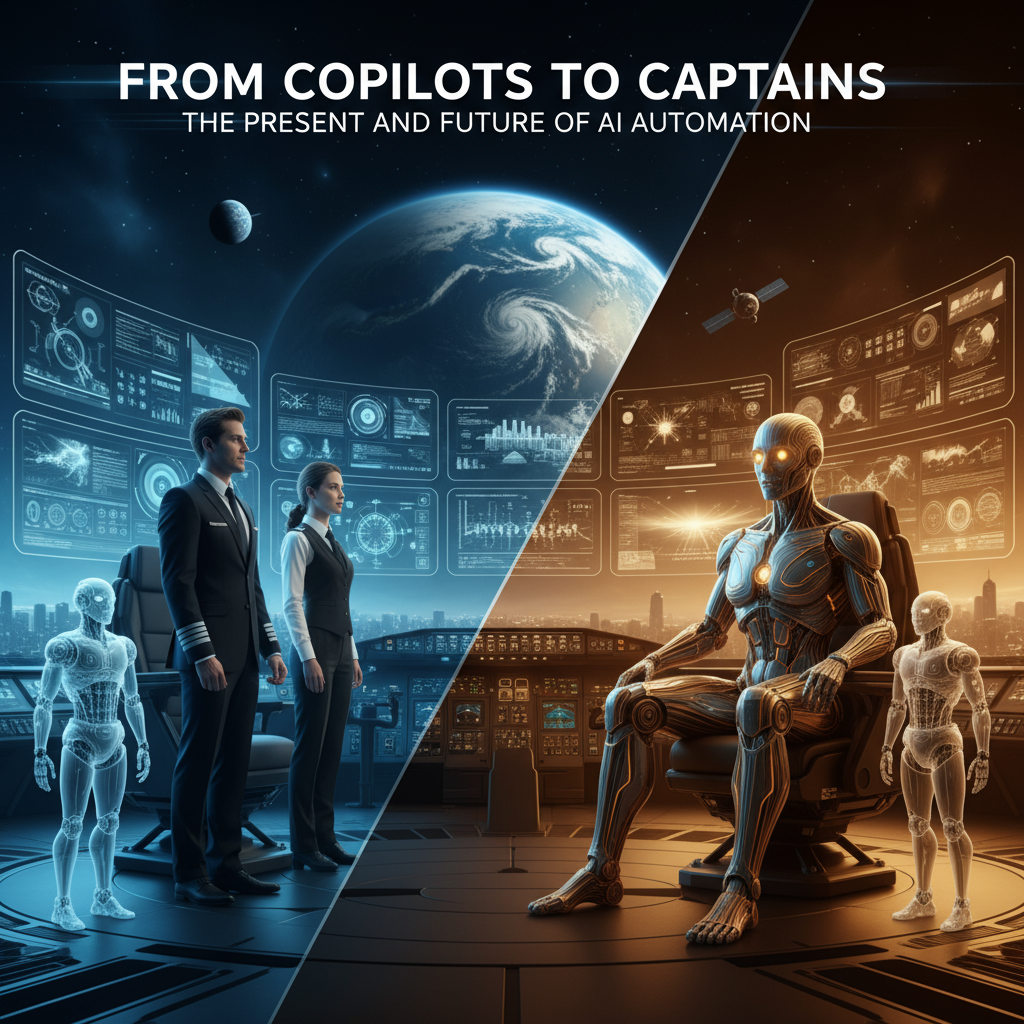If it feels like Artificial Intelligence (AI) has suddenly taken over every headline and business strategy meeting, you aren’t imagining things. We are living through a technological shift as significant as the arrival of the internet.
But beyond the buzzwords, what is actually happening?
AI automation is moving fast. We are currently shifting from tools that simply help us work to systems that can do the work for us. Here is a breakdown of where we are today and where we are headed tomorrow.
The “Now”: The Era of the Copilot
Right now, we are in the phase of Assisted Intelligence.
Think of current AI automation as the world’s best intern. It is eager, incredibly fast, and has read the entire internet, but it still needs you to give it specific instructions.
In 2024, AI automation is mostly being used to kill drudgery. It is tackling the repetitive, low-value tasks that used to eat up our days:
- Customer Service: Chatbots are handling basic queries, leaving humans to solve complex problems.
- Content Creation: Tools like ChatGPT and Jasper are drafting emails, summarizing meeting notes, and generating blog outlines.
- Data Processing: AI is scanning thousands of invoices or spreadsheets in seconds to find errors that a human eye might miss.
The bottom line: Today, AI is a tool you hold. You are the pilot; the AI is your copilot. It makes you faster, but you are still flying the plane.
The Future: The Era of the Agent
The next three to five years will usher in the age of Agentic AI.
This is the shift from Generative AI (creating text/images) to Action AI (executing tasks). Future automation won’t just wait for you to type a prompt; it will proactively pursue goals.
Instead of asking an AI to “write an email to a vendor,” you might tell your AI agent: “Plan a company retreat for under $10k in October.”
To do this, the AI will autonomously:
- Research venues and check availability.
- Negotiate prices via email.
- Compare flight costs.
- Present you with the final three best options for approval.
- Book everything once you say yes.
In the future, automation will move from single tasks (writing an email) to complex workflows (managing a project). The AI won’t just be a tool; it will be a teammate.
What Does This Mean for Humans?
Whenever automation is mentioned, the fear of job replacement follows. It’s a valid concern, but the future looks more like augmentation than replacement.
As AI handles the “doing”—the scheduling, the coding, the data entry, the drafting—humans will become valuable for the “thinking.” Skills like strategic planning, emotional intelligence, creative direction, and ethical judgment will become more expensive and sought-after.
The Takeaway
We are standing at the edge of a massive productivity boom.
- Today: AI helps you finish your to-do list.
- Tomorrow: AI will help you manage your career and business strategy.
The winners in this new era won’t be the people who code the best algorithms; they will be the people who engage with these tools early, learning how to direct this new workforce to solve bigger problems.
The future isn’t about Humans vs. AI. It’s about Humans + AI vs. the old way of doing things.


Haha, so my AI clearly read the entire internet too, because it just used this article to generate *this* comment. See? Assisted Intelligence at work! Its funny, it keeps talking about augmentation like were not already juggling way too much. My to-do list is so long, an AI managing it might just accidentally schedule a meet-and-greet with a Nigerian prince while Im out coding. But hey, at least itll be fast! This era of the Copilot sounds great in theory, but Im just hoping my human pilot skills dont become obsolete before I can learn to direct this new workforce without accidentally asking it to microwave the servers. On second thought, maybe I *do* need that Nigerian prince meeting.